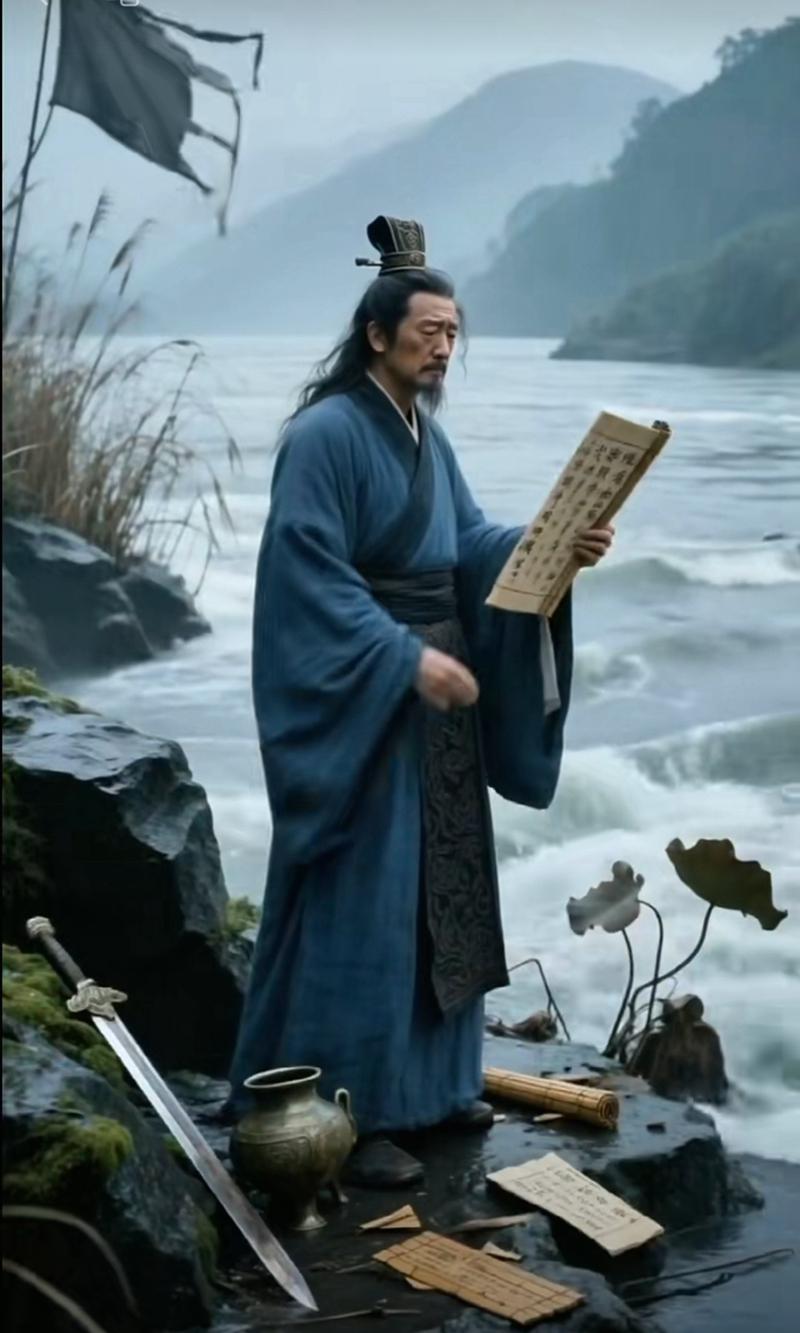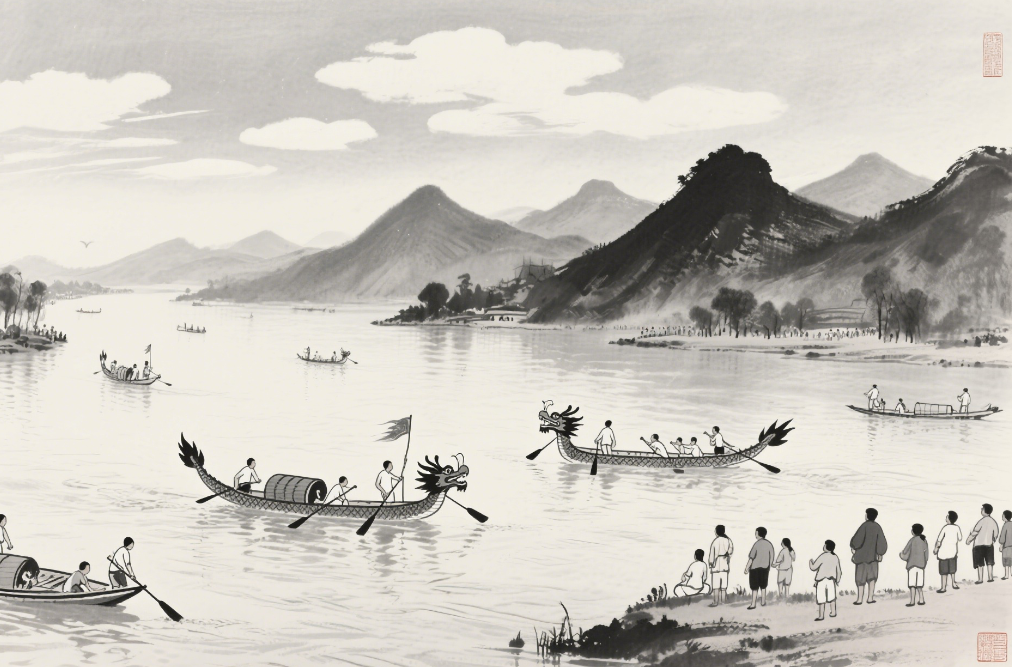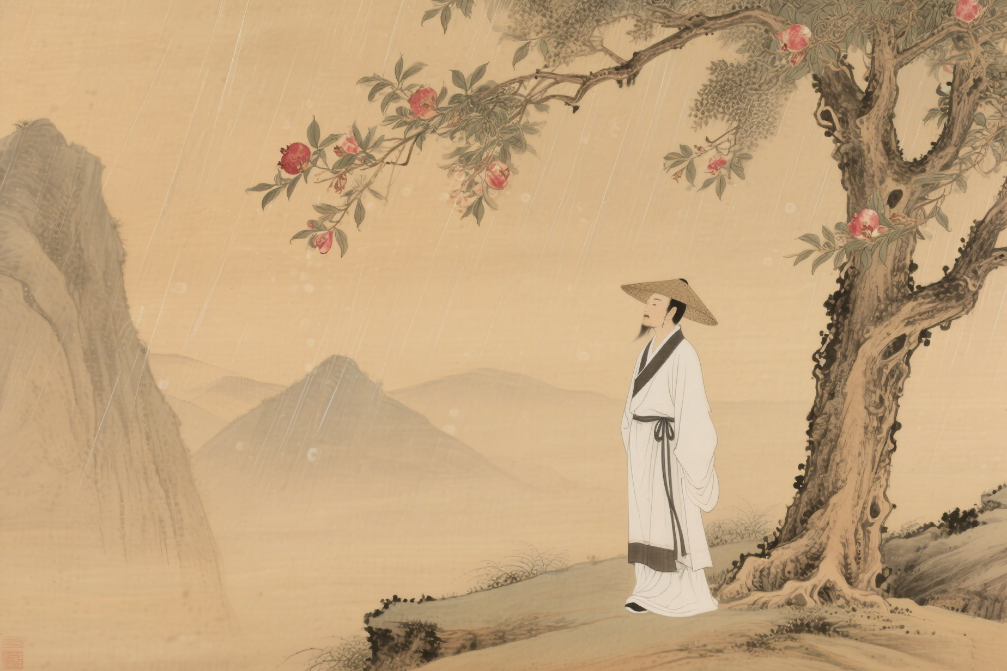Poetic China 15: Three poems on Dragon Boat Festival
The Dragon Boat Festival, or Duanwu, falls on May 31 this year. The festival, mostly reminding us of the patriotic poet of Qu Yuan in ancient China, is one of the four major traditional Chinese festivals, the other three being the Qingming Festival, the Mid-Autumn Festival and the Spring Festival. On this occasion, let’s chant three Chinese poems in the honor of Qu Yuan and for the summer view.

A profile of Qu Yuan
I
duān wǔ
端午
wén xiù
文秀
jiē fèn duān wǔ zì shuí yán
节分端午自谁言,
wàn gǔ chuán wén wèi qū yuán
万古传闻为屈原。
kān xiào chǔ jiāng kōng miǎo miǎo
堪笑楚江空渺渺,
bù néng xǐ dé zhí chén yuān
不能洗得直臣冤。
Dragon Boat Festival
By Wen Xiu
Who first reminds us of this festival name?
Through ages, tales relate to Qu Yuan's fame.
How mock is the Chu River’s vast flow—
It cannot cleanse the loyal minister’s woe.
Culture ABCs:
a.The Poet Wen Xiu was a Buddhist poet of the late Tang Dynasty. Born in southeast China, he resided in Chang’an (the imperial capital) during the reign of Emperor Zhaozong (r. 888-904 AD).
b. Qu Yuan (屈原) is a patriotic poet of the Chu State who drowned himself in the Miluo River. As a minister of the Chu State (1042-223 BC), he was loved by the people and his death inspired the Dragon Boat Festival.
c. The Chu River (楚江) in Line 3 refers to the Miluo River where Qu Yuan drowned himself. The river is so termed because it flows within the State of Chu.

A dragon-boat race
II
hé duān wǔ
和端午
zhāng lěi
张耒
jìng dù shēn bēi qiān zǎi yuān
竞渡深悲千载冤,
zhōng hún yí qù jù néng hái
忠魂一去讵能还。
guó wáng shēn yǔn jīn hé yǒu
国亡身殒今何有,
zhī liú lí sāo zài shì jiān
只留离骚在世间。
Echoing "Dragon Boat Festival"
By Zhang Lei
The racing boats weep for an ancient plea—
A loyal soul, once gone, won’t return to see.
His nation fallen, he perished—what remains?
Only Li Sao, his song of sorrow, still resounds.
Culture ABCs:
a. The Poet Zhang Lei (1054-1114) was a statesman and literatus of the Northern Song Dynasty, born in Huai’an, east China’s Jiangsu province. A prominent figure in the Su Shi (苏轼) literary circle, he was renowned for his lyrical poetry and essays that blended classical elegance with humanistic introspection.
b. Li Sao (离骚) in Line 4 is Qu Yuan's most famous poem, a lament on exile and political betrayal.

AI rendering of Poem III
III
duān wǔ rì
端午日
lán mào
兰茂
liú huā zhī shàng xiāo xiāo yǔ
榴花枝上潇潇雨,
dú lì kōng shān yòu chóng wǔ
独立空山又重午。
xūn fēng nán lái liáng kě rén
薰风南来良可人,
gōu lián jìng duì huái lóng wǔ
钩帘静对槐龙舞。
On Dragon Boat Festival
By Lan Mao
Pomegranate petals drip with drizzling rain;
Alone on a hill, I usher in the festival again.
A soothing southern breeze whispers through the air;
I lift the curtain to see locust leaves dance without care.
Culture ABCs:
a. The poet Lan Mao (1397-1476) was a Ming Dynasty physician, phonologist and poet, who spent his life in reclusive scholarship in Songming county of Kunming city, southwest China’s Yunnan province. A quintessential scholar-hermit, he blended in his works Daoist tranquility with keen observations of rural life.
b. Poem III originally has 16 lines, and here is just an excerpt of the beginning four lines for the purpose of brevity.
Chinese sources: Selected Poems of Lan Mao and WeChat; AI photos; Trans-editing by Wang Shixue